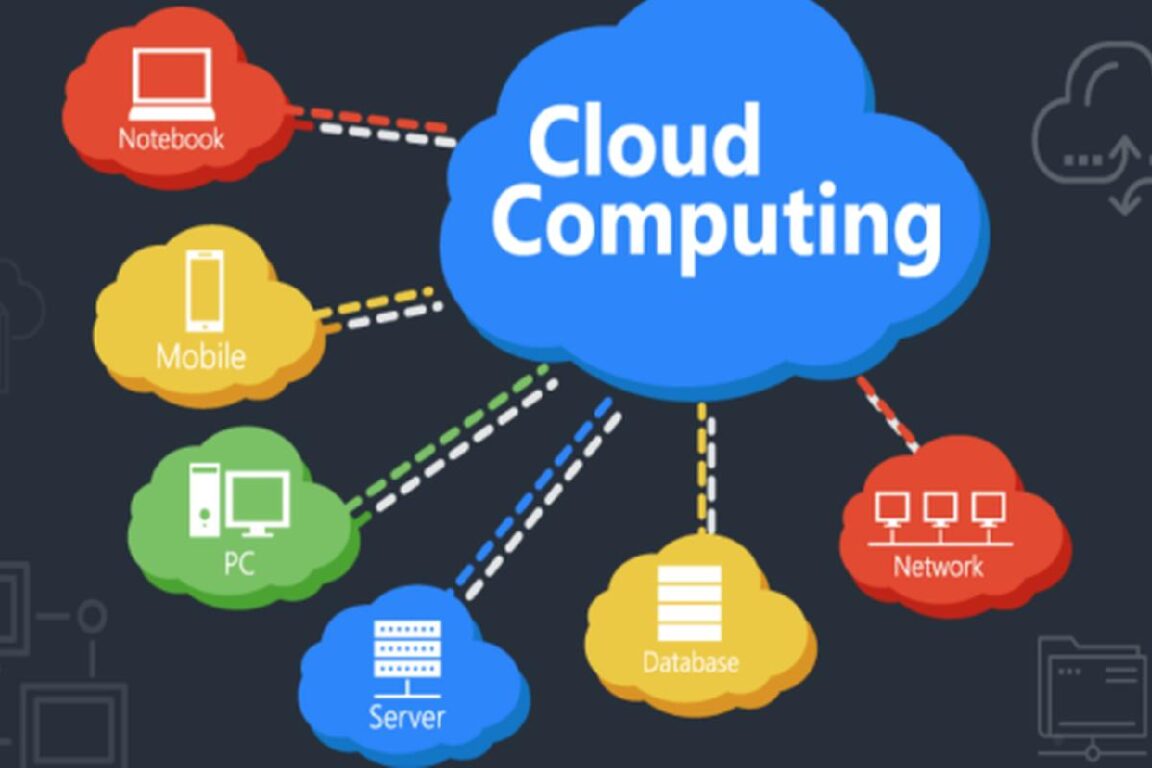Cloud computing is the on demand delivery of compute resources, including servers, storage, databases, networking, package, analytics, and intelligence, over the Internet.
Cloud computing provides a way to access these resources and services on an as-needed basis without the need to invest in and maintain exclusive on premises infrastructure. This can save businesses money and resources and allow them to scale their IT operations more easily as their needs change.
The Three Main Types of Cloud Computing:
The Infrastructure as a Service (IaaS) delivers access to virtualized computing properties, such as servers, storage, and networking. This allows businesses to provision and manage their own IT infrastructure in the cloud.
Platform as a service (PaaS) delivers a platform for developing, deploying, and managing applications. This includes the underlying infrastructure, as well as development tools and runtime environments.
Software as a service (SaaS) delivers access to applications that are hosted and accomplished by the cloud provider. This allows businesses to use applications without having to install or maintain them on their own computers.It is a quickly growing market, and it is being used by businesses of all sizes in a variety of industries.
In addition to these three main types, there are also a number of hybrid and multi-cloud deployment models.
Hybrid cloud: is a deployment model that combines on-premises infrastructure with cloud-based resources. This can be a good option for businesses that need to maintain some control over their IT infrastructure but also want to take benefit of the elasticity of cloud computing.
Multi-cloud: is a deployment model that uses multiple cloud providers. This can be a good option for businesses that want to avoid vendor lock-in or that need to access a broader range of cloud services.
Some of the Assistances of Cloud Computing include:
Cost savings: Cloud computing can help businesses to save money on IT costs by eliminating the need to invest in and maintain on-premises infrastructure.
Scalability: Cloud computing makes it relaxed for businesses to scale their IT operations up or down as needed. This can help businesses to save money by only paying for the resources they need.
Flexibility: Cloud computing allows businesses to access IT resources from anywhere with an internet connection. This can help businesses to be more nimble and responsive to changing customer needs.
Security: Cloud providers offer a variation of security features to protect businesses’ data. This can help businesses to reduce their risk of data breaches.
Accessibility: Cloud computing services can be accessed from any place with an internet connection, making them ideal for businesses with remote workers or a global customer base.
Innovation: Cloud computing providers are constantly innovating and adding new features and services. This can help businesses to stay forward of the competition and adopt new technologies more quickly.
Overall, cloud computing can propose a number of benefits to businesses of all sizes. If you are considering moving to the cloud, it is essential to reflect the benefits and drawbacks carefully to control if it is the right solution for your business.
It is an authoritative tool that can help businesses to save money, improve efficiency, and reach new markets. As the technology continues to progress, we can suppose to see even more advanced applications of cloud computing in the years to come.
The Uses of Cloud Computing
It is a comprehensive term that encompasses a wide range of services and applications. Some of the most common uses of it includes:
Storage
Cloud storage services allow businesses to store their data in the cloud, which can save them money on on-premises storage costs. Cloud storage services also offer features such as disaster recovery and data replication, which can help businesses to protect their data from loss or damage.
Compute
Cloud computing services can be use to provision and manage virtual machines. Which can be use to run applications and workloads. This can help businesses to save money on hardware costs and to scale their IT operations up or down as needed.
Networking
Cloud computing services can be use to provide businesses with a wide range of networking services, such as load balancing, content delivery networks, and virtual private networks. These services can help businesses to improve the performance, security, and reliability of their networks.
Applications
Cloud computing services can be used to deliver a wide array of applications, such as email, collaboration, and customer relationship management (CRM) software. This can help businesses to save money on software licensing and maintenance costs.
Business intelligence
Cloud computing services can be used to collect, store, and analyze data. This data can be used to help businesses make better decisions, improve customer service, and identify new market opportunities.
Machine learning
Cloud computing services can be use to train and deploy machine learning models. These models can be use to automate tasks, improve decision-making, and identify patterns in data.
These are just a few of the many ways that it can be use. As the technology endures to grow, we can suppose to see even more innovative uses of it in the years to come.
Conclusion
Cloud computing is a quickly growing technology that is changing the way businesses operate. By providing businesses with access to a vast pool of computing resources. It can help businesses to save money, improve efficiency, and reach new markets.
There are a number of different types of cloud computing services, each with its own benefits and drawbacks. Businesses should carefully reflect their needs and requirements when choosing a solution.


